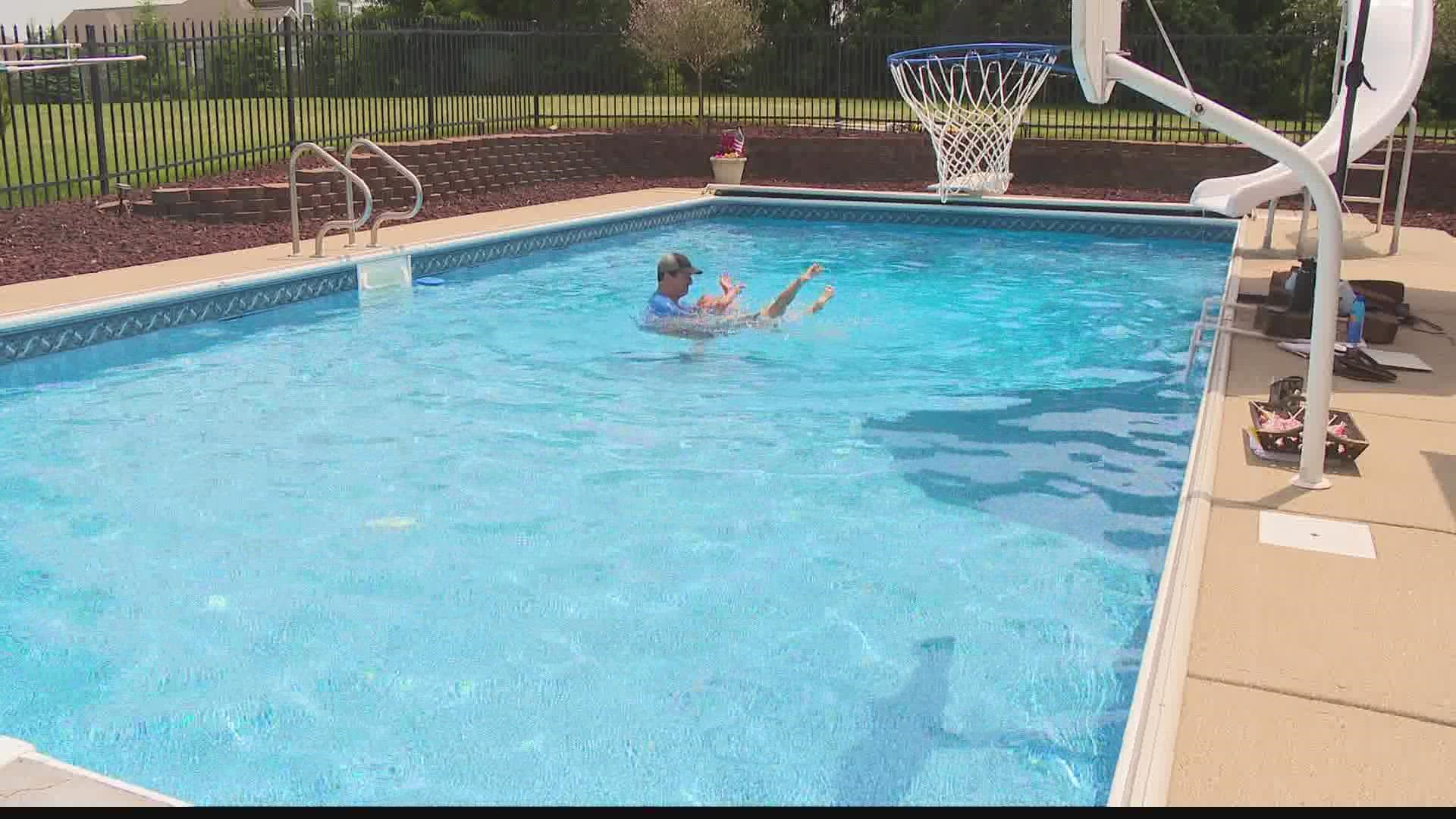FORTVILLE, Ind. — It is difficult to watch an infant treading water. But in Matt Papachronis' private pool, the child is learning to survive. The Hamilton Southeastern swim coach is teaching young children how to self-rescue if they fall in the water.
"Drowning is the leading cause of death for children under the age of 4. Whatever I can do to help our community be safer or more confident around water, I want to do," Papachronis said. "Our main objective is to help waterproof our community. We want to make sure that not one more child drowns."
Papachronis has been a competitive swim coach since he was 21 and has spent the last several years teaching with Indy Infant Swimming Resource, which specializes in teaching water survival skills to children between the age of 6 months and 5 years old.
"The goal is to fall in from any type of perspective — whether they're crawling from the edge of the pool or barely walking at the edge of the pool — any type of scenario when they're near water, and they would enter or fall and be able to sustain that and safely roll to their back and float and breathe," Papachronis said.
The program follows an organized curriculum and includes extensive training.
"The first lesson, there's a lot of figuring out their environment," Papachronis said. "They're getting acclimated to me. They're getting acclimated to the pool, to the whole environment, the sky around them."
Part of the lesson is getting the kids comfortable being away from their parents. Papachronis said by the fifth or sixth week, the kids are fully independent in the water. They would be able to fall into the water, roll to their back, and safely float and breathe.
Fishers resident Michelle Johnson and her husband have three children. Their oldest son graduated from the Infant Swimming Resource program in Illinois. Now, her 4-year-old boy is learning. Even though Duke is crying at times during the lessons, his mom said that's normal at the beginning.


"Fighting against the uncomfortableness of trying to float on their back, not having a floatie on, not having goggles on, so to me, this was all normal," Johnson said.
The 6-week program costs $500. Each child is taught how to roll onto their back and float. One 15-month-old girl can now float for 30 seconds on her own. That's what Aubrey Herron and her husband want for the 16-month-old twin boys they adopted.
"We are always around water. So, this is very important for us to do as a family," Herron said. "I just want a peace of mind going into the summer that if something were to happen, they could survive, save themselves and cry for help."
Herron swam competitively from age 6 through college and taught swimming lessons for 10 years. But she doesn't know how to teach life-saving skills to young children.


"I've seen a lot of lessons where it's more like a playtime in the water. A lot of singing and dancing and jumping around, and I knew that wasn't going to cut it in terms of life-saving skills," Herron said. "All it takes is a couple of minutes for them to open a door or slip out of our sight, and drowning can happen in two minutes or less, so there's a lot of anxiety."
Herron was pleased with her boys', Crew and Cowen, first swim lesson with Papachronis.
"He [Crew] did great in the water today, pretty close to a float on day one," Herron said. "With Matt's assistance, I think he'll be done in a couple of weeks. [Cowen] did great on his first day and floated unassisted. He really didn't cry that hard, so that was a surprise."
Papachronis said he has taught water survival skills to approximately 120 kids. Even though many look uncomfortable at the beginning, Papachronis encourages parents to trust him for the results.
"They're shocked at what their child is able to do," he said "They have confidence in and around the water. It gives them one extra layer of safety that's part of a bigger picture of taking care of your children around water."

